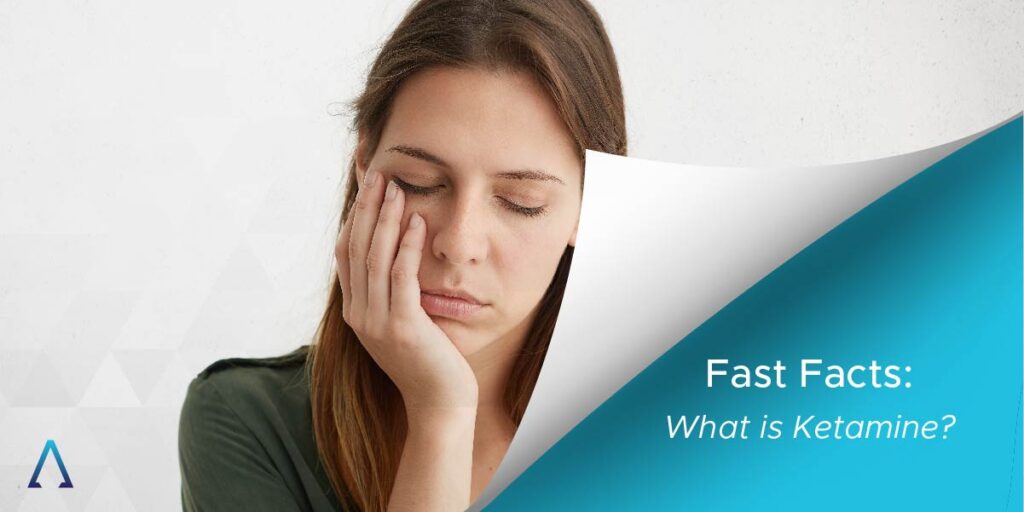Ketamine is a drug used by physicians as an anesthetic. It is sometimes misused by people outside of a medical setting in order to get high.
Ketamine is a dissociative, meaning that it makes people feel detached from reality. The colloquial phrase for this sense of disconnection is “falling into a k-hole.” This drug also has hallucinogenic and sedative effects. It can cause difficulty moving or speaking, confusion, and dream-like states.
Possible long-term effects of misuse include poor memory, abdominal pain, headaches, and addiction.[1] Overdose is also a risk.
As of 2015, 3 million people aged 12 or older had used ketamine.[2] Teenagers and young adults are the most common age group to abuse this drug; 74% of emergency department visits related to ketamine are among those aged 12 to 25.[3]
However, in the last several years, small doses of this drug have shown promise as part of depression treatment. It may be useful for people whose depression has not responded to other treatments. However, for this to be effective, ketamine must be taken only under medical supervision. If you are considering this option, your care provider can help you weigh the costs and benefits.
According to Harvard Health Publishing, “Like opioids, ketamine has addictive properties. It’s important to understand this when weighing risks and benefits. If you have a history of substance abuse––such as alcohol or drugs––it’s especially important for you and your doctor to consider whether ketamine is a good option for you.”[4]
If you are struggling with a substance use or mental health disorder, there is hope. TruHealing Centers offers high-quality treatment for addiction and mental health disorders in facilities across the country. Our staff—many of whom are in recovery themselves—will help you process the underlying reasons you used substances and build new ways of coping. Call an admissions specialist at 410-593-0005.
[1] https://adf.org.au/drug-facts/ketamine/
[2] https://www.ncbi.nlm.nih.gov/books/NBK424847/table/appd.t6/
[3] https://www.justice.gov/archive/ndic/pubs4/4769/4769p.pdf
[4] https://www.health.harvard.edu/blog/ketamine-for-major-depression-new-tool-new-questions-2019052216673








